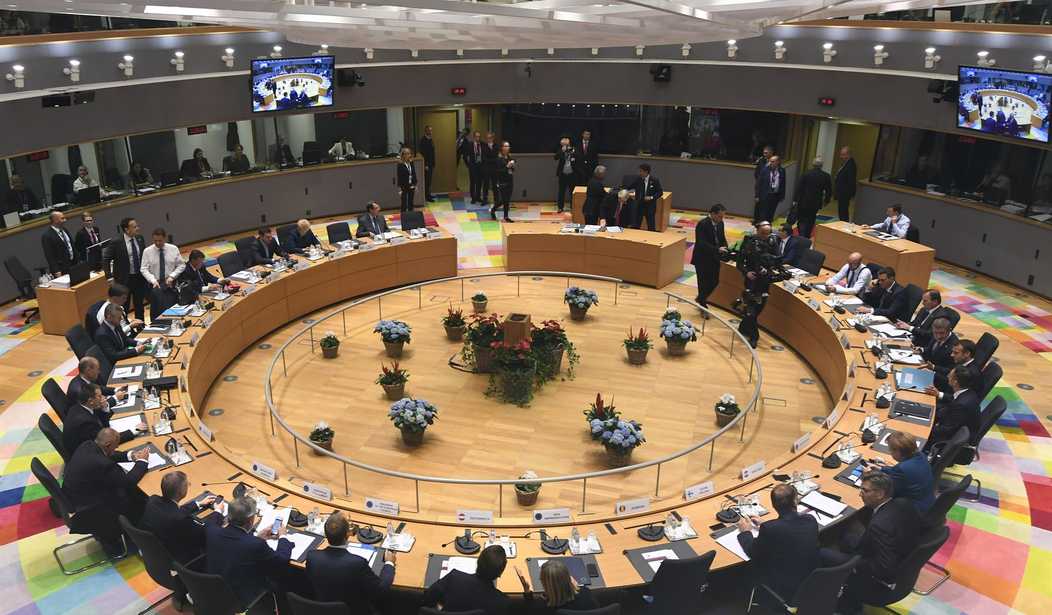Top News
EU not so “unified” on defunding Palestine

The only thing that should be surprising about this particular news item is that anyone is actually surprised. Leaders of the European Union have been hurriedly huddling to determine how to respond to the invasion of Israel by Hamas terrorists. You might think that would be a fairly easy call to make, but you would be mistaken. A proposal was put on the table yesterday to freeze funding for the Palestinian Authority in response, but they couldn’t agree and pushed the decision back until the EU’s foreign affairs ministers meet to discuss it today. But we already knew that support for Israel is not universal among all European nations. And arguments are already breaking out over who specifically would be receiving any of the aid money and how the various parties might be separated in terms of receiving aid. (Politico)
The EU’s united front on Israel’s war with Hamas is already showing its first cracks.
The European Commission on Monday publicly disagreed over whether to freeze aid to the Palestinian Authority. Meanwhile, Tuesday’s EU foreign affairs ministers meeting risks leading to an internal showdown, EU diplomats and officials warned, given the disagreements between EU countries on the conflict.
“Israel-Palestine is one of the most divisive issues in the EU,” said one EU official, who was granted anonymity to speak publicly. “The intra-European divisions on this conflict are almost as old as the conflict itself.”
The current disagreements take a variety of tones. The minister from Slovenia (a traditional ally of the Palestinians) was opposed to any freezing of aid. EU Commissioner Janez Lenarčič said the he “condemned” the attack by Hamas, but that aid to “Palestinians in need” would continue “as long as needed.”
That brings up another element of the word salad on display here. A lot of members are falling back on a traditional strategy of trying draw a rigid distinction between Hamas and the Palestinian Authority. The former is described as the terrorist group, while the PA is the supposed “civilian authority” that works toward peace. Perhaps there is still at least some truth to that, or at least there was in the past, but we can’t really separate them entirely.
The Palestinian Authority is traditionally the body that does all of the negotiations with Israel and the rest of the world. Meanwhile, Hamas plots and does all of the dirty work. But if the PA really wanted to, it could move to help flush Hamas out of the system. That wouldn’t be popular with everyone, but the ones who oppose it are probably the ones we need to get rid of anyway. And if you send money to the PA, it’s impossible to prevent at least some of it from finding its way into the coffers of Hamas.
There are a lot of countries that have been bound together under the European Union but they are hardly homogenous across all international topics of interest. The western nations tend to be a bit more supportive of Israel, at least for the most part. Eastern European nations tend to wind up backing the Palestinians more for whatever reason. But let’s keep in mind that while the 27 member states are all flying the same EU banner today, some of them have famously engaged in some bloody, brutal wars with each other, and not really all that long ago. Some were on different sides of the cold war between the United States and the Soviet Union. We shouldn’t be terribly shocked if they can’t all get on the same page about Israel.
In any event, the various notices released by the EU thus far suggest that the final answer will be a mixture of some from column A and some from column B. They are all agreeing that “no funds should enable any terrorist organization to carry out attacks against Israel.” But many are still talking about “a review” of aid to “the Palestinian people,” rather than a “freeze” or cessation. Meanwhile, Hamas was back to firing barrages of rockets into Israel while the IDF appeared to be mobilizing troops for a significant ground offensive into Gaza. So nothing appears to be changing too quickly.
Read the full article here


















